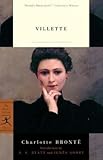Bad art makes me so
irritable. More so when
they all think its good.
Leonardo da Vinci’s Reflection on Death
8 months ago
lists, reviews, nostalgia, paradox and smoking clowns
 The Hero Factory is a super great way to spend time you should spend sleeping or doing homework. Here's your new procrastination activity: create your own superhero. They'll even name it for you and give you a comic book cover. Ian did his, and here's mine. They named me "The Talented Splintery Condor" but when I made some alterations, they changed the name to "The Superhuman Barky Angel." Here's a look at both.
The Hero Factory is a super great way to spend time you should spend sleeping or doing homework. Here's your new procrastination activity: create your own superhero. They'll even name it for you and give you a comic book cover. Ian did his, and here's mine. They named me "The Talented Splintery Condor" but when I made some alterations, they changed the name to "The Superhuman Barky Angel." Here's a look at both.


 Villette by Charlotte Brontë
Villette by Charlotte Brontë To my delight, I was again asked movie advice by a professor who's working on co-teaching a class with a psychology professor on some aspect of food and theology. The email said "if you think of some good movie titles that would work around that topic, could you send them my way? I already thought of Babette’s Feast, and there is the one about the two brothers with an unsuccessful restaurant (title?)."
To my delight, I was again asked movie advice by a professor who's working on co-teaching a class with a psychology professor on some aspect of food and theology. The email said "if you think of some good movie titles that would work around that topic, could you send them my way? I already thought of Babette’s Feast, and there is the one about the two brothers with an unsuccessful restaurant (title?)." which was also remade in the US as "Tortilla Soup." Both have food as the backdrop for family stories about people living into fullness and desire instead of deprivation ie: learning to grieve as well as to celebrate. very lovely films.
which was also remade in the US as "Tortilla Soup." Both have food as the backdrop for family stories about people living into fullness and desire instead of deprivation ie: learning to grieve as well as to celebrate. very lovely films. There's a documentary i've not yet seen called "How to Cook Your Life" about chef Edward Espe Brown, a Buddhist chef in San Francisco. might be some valuable stuff in there- just came out in 2007.
There's a documentary i've not yet seen called "How to Cook Your Life" about chef Edward Espe Brown, a Buddhist chef in San Francisco. might be some valuable stuff in there- just came out in 2007.  That's what comes to my mind moviewise. On a side note, my housemates and I have become ADDICTED to Gordon Ramsey's Kitchen Nightmares, which we watch on BBC America. Famous Chef Ramsey goes into American restaurants that are about to collapse financially or otherwise, and he discerns whether its relational issues, financial mismanagement, plain old bad cooking or lack of understanding their context (are they one of 40 italian restaurants on the block...)
That's what comes to my mind moviewise. On a side note, my housemates and I have become ADDICTED to Gordon Ramsey's Kitchen Nightmares, which we watch on BBC America. Famous Chef Ramsey goes into American restaurants that are about to collapse financially or otherwise, and he discerns whether its relational issues, financial mismanagement, plain old bad cooking or lack of understanding their context (are they one of 40 italian restaurants on the block...)  Lilith by George MacDonald
Lilith by George MacDonald Now that Ian and I are done with the conference and the seven months of research and writing (not including the work we'll do eventually to make it journal-submission ready), we're finally getting our paper out to people- hoping to generate dialogue beyond our half hour at the conference panel.
Now that Ian and I are done with the conference and the seven months of research and writing (not including the work we'll do eventually to make it journal-submission ready), we're finally getting our paper out to people- hoping to generate dialogue beyond our half hour at the conference panel. 
